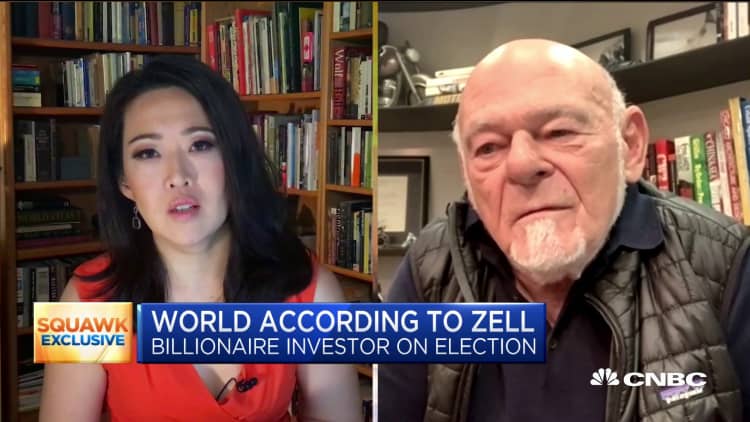Retailers are reporting some of the biggest online sales gains in their history thanks to the coronavirus pandemic, which temporarily shut many stores, holed consumers up at home, and pushed more people to the internet to browse and buy groceries, clothes and workout gear.
But will these eye-popping gains stick around? Likely not.
"This growth is definitely going to go down next year," Forrester analyst Sucharita Kodali said in an interview. "Anybody who has any proclivity to buy online has bought online. Anything they would have needed, they purchased."
"Right now, we are still operating in an environment where there is social distancing," she said. "Once things get back to normal, you are going back to the stores."
Still, even if this is a temporary consequence from the pandemic, it would be hard to simply gloss over these numbers — many of which were triple-digit percentage increases.
At Best Buy, online sales were up 242% during its fiscal second quarter, with people stocking up on electronics and equipment for their home offices. Target, Dick's Sporting Goods, Lowe's, Tiffany and Home Depot all also reported triple-digit growth online. Gap Inc.'s total e-commerce sales soared 95% from a year ago, and within that it said its Old Navy business surged 136% online.
"If I were to leave you with one thing, we are digitally led," Gap Chief Executive Sonia Syngal said in a phone interview Thursday. "To have a quarter where 50% of our business came from online, at our scale, we are really excited to build from this."
Even some companies that didn't disclose exact growth figures talked about robust gains. During the latest quarter, beauty retailer Ulta said its digital business was up more than 200%; Free People and Anthropologie owner Urban Outfitters said it saw "strong double-digit growth" online; while Coach and Kate Spade parent Tapestry also noted its web sales skyrocketed by a triple-digit rate.
Not all of this e-commerce growth hits the bottom line in the say way, though.
Abercrombie & Fitch and Dick's Sporting Goods managed to grow e-commerce revenue while also boosting profitability — a notable achievement considering digital transactions come with added expenses for companies like handling returns, packaging and shipping. When a customer walks into a shop to buy something, those are the sales that tend to be the most profitable.
Retailers are cutting costs elsewhere during the pandemic, however, making this shift possible. They are cutting jobs and employees' hours, closing underperforming stores and aiming to use less promotions.
Abercrombie CFO Scott Lipesky told CNBC earlier this week: "As long as you can reduce fixed costs, this shift to digital can be profitable." During the latest quarter ended Aug. 1, Abercrombie's store and distribution expenses were down almost 18%, while marketing costs dropped 16%.
And Tapestry's gross profit margins for the period ended June 27 improved at each of its brands due, in part, to fewer markdowns on bags and jewelry. The company said it hopes to keep margins strong, too, by keeping inventory levels lighter. As one example, the Coach brand will have 50% less handbags and items for customers to choose from this upcoming holiday season, it said.
Gap swung to a quarterly net loss, though, because it said it faced higher costs shipping inventory to customers' homes from its stores.
A number of retailers including Nordstrom and Target have highlighted to analysts and investors just how much their digital sales have grown from a year ago — to become a much larger portion of their businesses.
Analysts expect some will hold on to this trend longer than others, with those that had been investing online before the global pandemic struck faring the best.
"Retailers that have adapted quickly and that invested in e-commerce are reaping the benefits," Retail Metrics Founder Ken Perkins said in a note to clients.
"Curbside pickup, same-day delivery [and] contactless transactions are king in this environment," he said.
—CNBC's Amanda Lasky contributed to this reporting.




